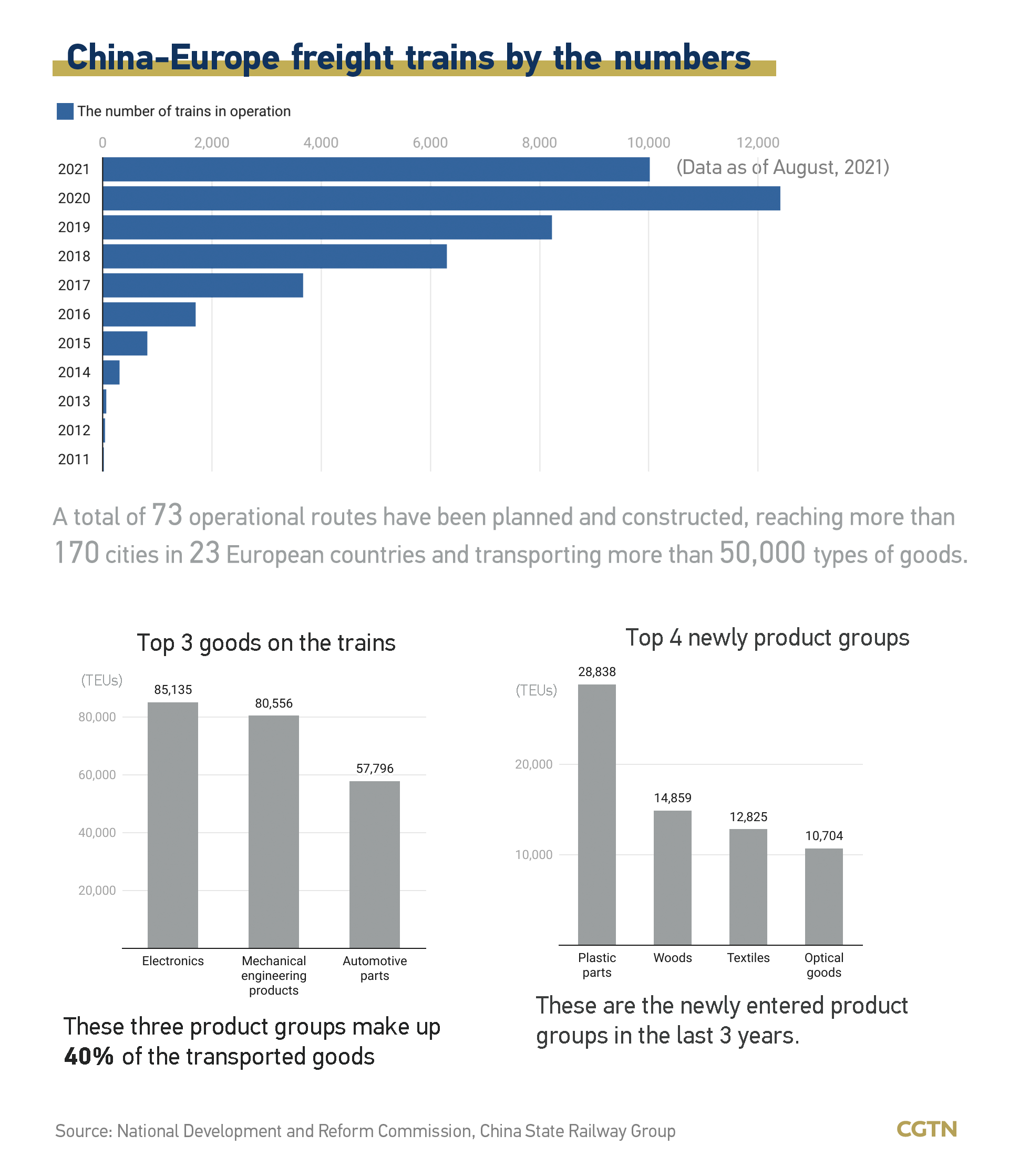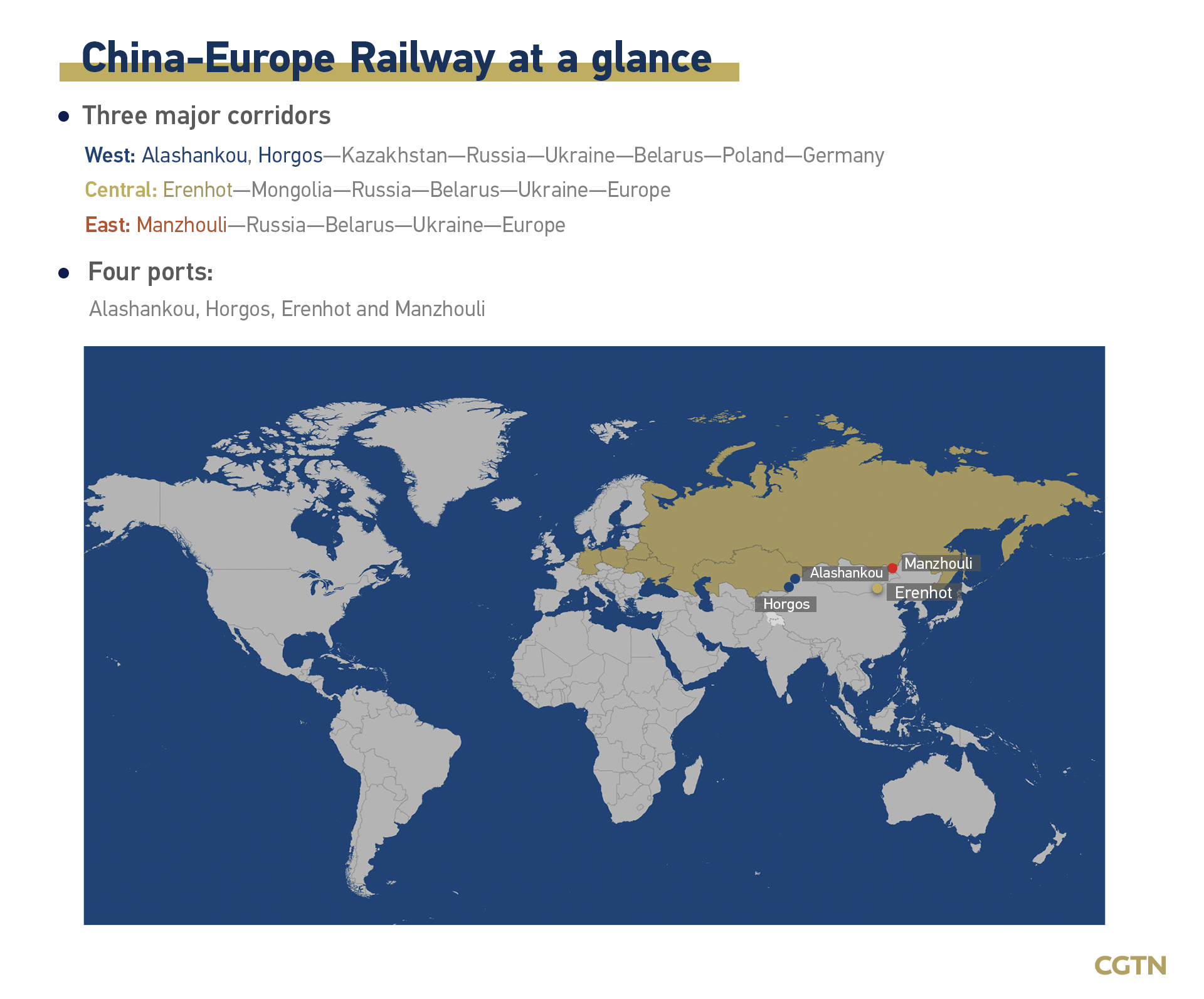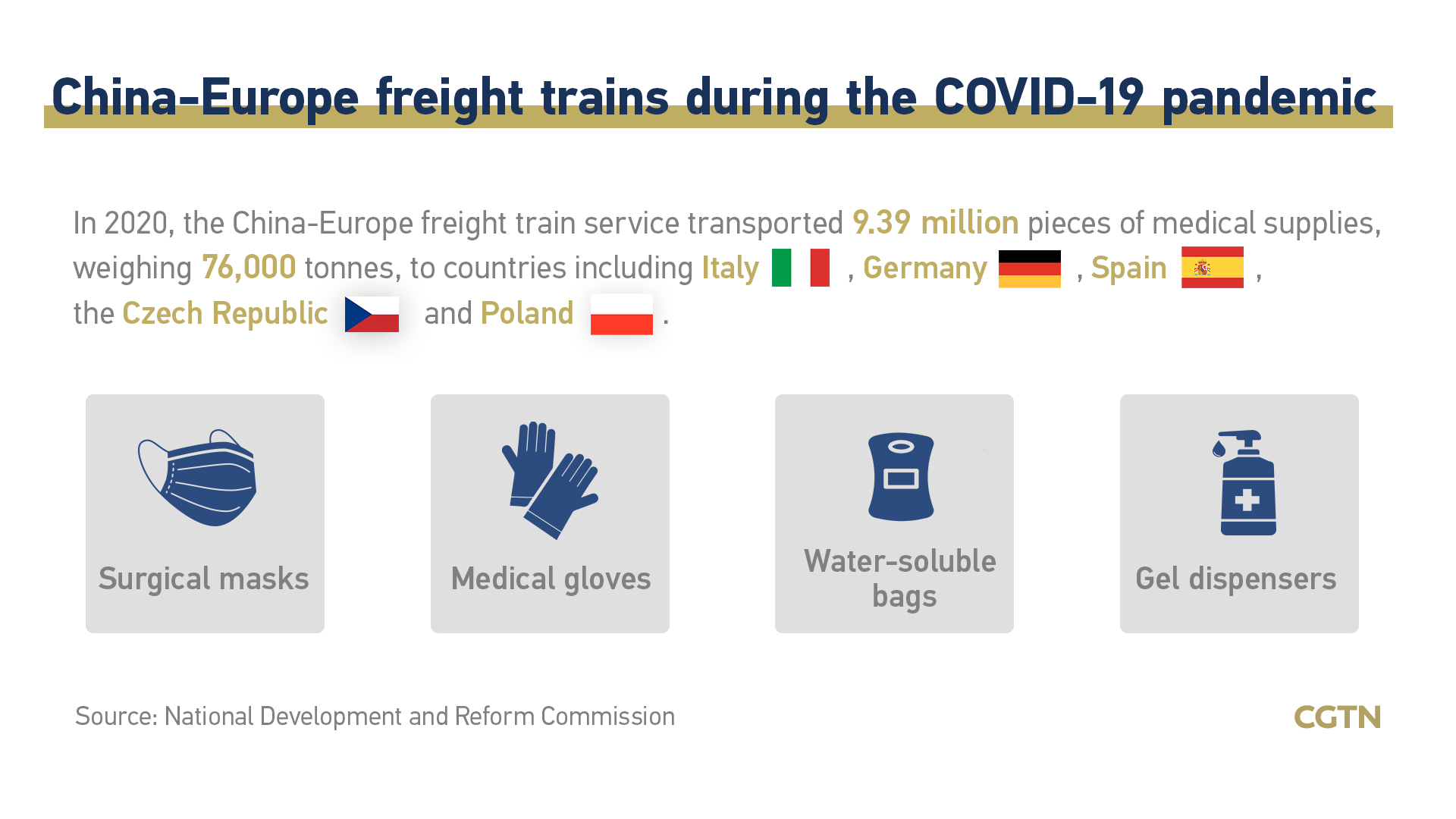Rail freight along the New Silk Road has proven its efficiency by keeping the supply chains running during the pandemic. The fifth European Silk Road Summit opened in Amsterdam, the Netherlands on Tuesday, with over 300 rail freight professionals in attendance to discuss the latest developments and challenges along the New Silk Road and the role of China-Europe rail freight during COVID-19.
Data shows that the rail container traffic along the China-Europe route via Russia was not affected by the pandemic this year. From January to September 2021, it has seen a 47 percent year-on-year growth, rising to 568,700 twenty-foot equivalent units (TEU), with the amount exceeding the 2020 total.
Commercial rail transport has set new records and acquired a reliable and resilient profile. Over the past year, the volume of container traffic along the route has increased 7.9 times.

Notably, the China-Europe freight-train service has recorded more than 40,000 trips since the first train departed from Chongqing in southwest China in March 2011.
Countries along the international freight route have shown growing interests in cooperation on upgrading logistics chains to speed up post-pandemic recovery.

Finnish Minister for Development Cooperation and Foreign Trade Ville Skinnari said that railway freight, featuring much lower carbon emissions, has a clear sustainability advantage compared to other means of transport.
"For the companies, it is important to be able to diversify their logistical chains, add value with speed and have alternative means of transport. Especially after the COVID-19 pandemic, the logistical chain risk is definitely something that many companies are more aware of," said Skinnari.
During the pandemic, tens of thousands of tonnes medical supplies were sent through the route, with special trains carrying surgical masks, medical gloves, water-soluble bags, contactless gel dispensers to multiple countries.

Volker Tschapke, honorary president of Germany's Prussian Society, called the train route an anti-pandemic "Green Passage," noting that "Europe was rather desperately encountering the first wave of COVID if you remember. (Medical) shortages were seen everywhere. The train routes were vital and they save lives."
Ivan Ruzbacky, president of PKP Cargo Connect, said that the new connection between Wroclaw and Chinese cities is a further step to enhance connectivity under the Belt and Road Initiative.
The project offers "a unique opportunity to fit into global supply chains," he said, adding, "This in turn translates into a positive perception by international customers and related development and expansion opportunities."
(With input from Xinhua News Agency)

